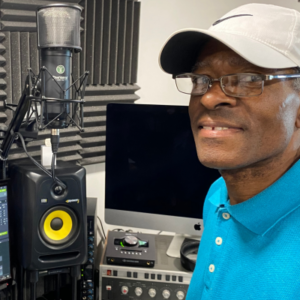First published 10 July 2020
In the late Sixties, Gene Page met the young singer Barry White, who was doing odd jobs to make ends meet between recording dates. To this day, the soul superstar remembers the arranger’s generosity. According to Barry White, during several Motown recording sessions on the West Coast at Motown Recording Studios, Page sneaked him into the studio where he was collaborating with the Tamla Motown songwriters and producers Holland-Dozier-Holland (Eddie Holland, Lamont Dozier, and Brian Holland). They were cutting “Forever Came Today” for Diana Ross and the Supremes and White was transfixed. White would eventually get a chance to emulate his heroes.
White owes Page more than the music. “In addition ….. he used to feed my family, pay my rent, give me gas money, food money for my children. I never had to pay him back. I tried many times . . . he’d never take it. When my ship came in, why would I use anyone else? When you say Barry White, Love Unlimited Orchestra, whatever else you say, always mention his name”. In 1972, White called Page in to work on Love Unlimited’s slinky, sensuous “Walking in the Rain with the One I Love”. White couldn’t read or write music and, at first, wouldn’t even sing himself: he let his protegees, the sisters Glodean and Linda James and Diane Taylor, front the record, while his deep voice came in on the telephone line halfway through the track, which became a Top 15 single in Britain and the United States.
Soon, Page became an indispensable right-hand man, listening intently to White’s ideas and directions, writing out charts for the different instruments and helping him fashion his unique, symphonic soul sound. Page recalled: “Barry would play with so much energy that the legs of the piano would buckle; his sweat would pour out into the keyboard. Barry White was the first to have five guitarists on one song, all playing different parts. The guitarists couldn’t hear it. And sometimes I couldn’t either. I’d question him. “Trust me” was his favourite line. And suddenly, magically, the parts and counterparts blended to perfection. Barry’s ears went to harpsichords, French horns, flutes, mandolins”. His ideas were never on paper but inside his head. Licks for tenor solos, accents for horns, complex patterns between drummers and bassists; Barry dictated, demonstrated, hummed out the parts. It was highly unorthodox, and it was also brilliant.
Between 1973 and 1978, the brilliance of those pillow-talk recordings helped Barry White, as a solo artist and, with his Love Unlimited and Love Unlimited Orchestra offshoots, sell over 100 million units and create what some sexologists still define as a “Barry boom”. No night out was complete until you’d heard the rhapsodic strings and shuffling rhythms of such songs as “Never Never Gonna Give You Up”, “Can’t Get Enough of Your Love Babe”, “You’re the First the Last My Everything”, “What Am I Gonna Do With You” and “Let The Music Play”. Page did all the string and horn arrangements for White’s million-selling albums and singles, creating a lush, polished, sexy sound that appealed mainly to the female population. This enabled Barry White to generate 16 million dollars in revenue for the entertainment industry in just a few short years.
Photo: Fotograaf Onbekend / Anefo 1974
(Wikimedia Commons)














